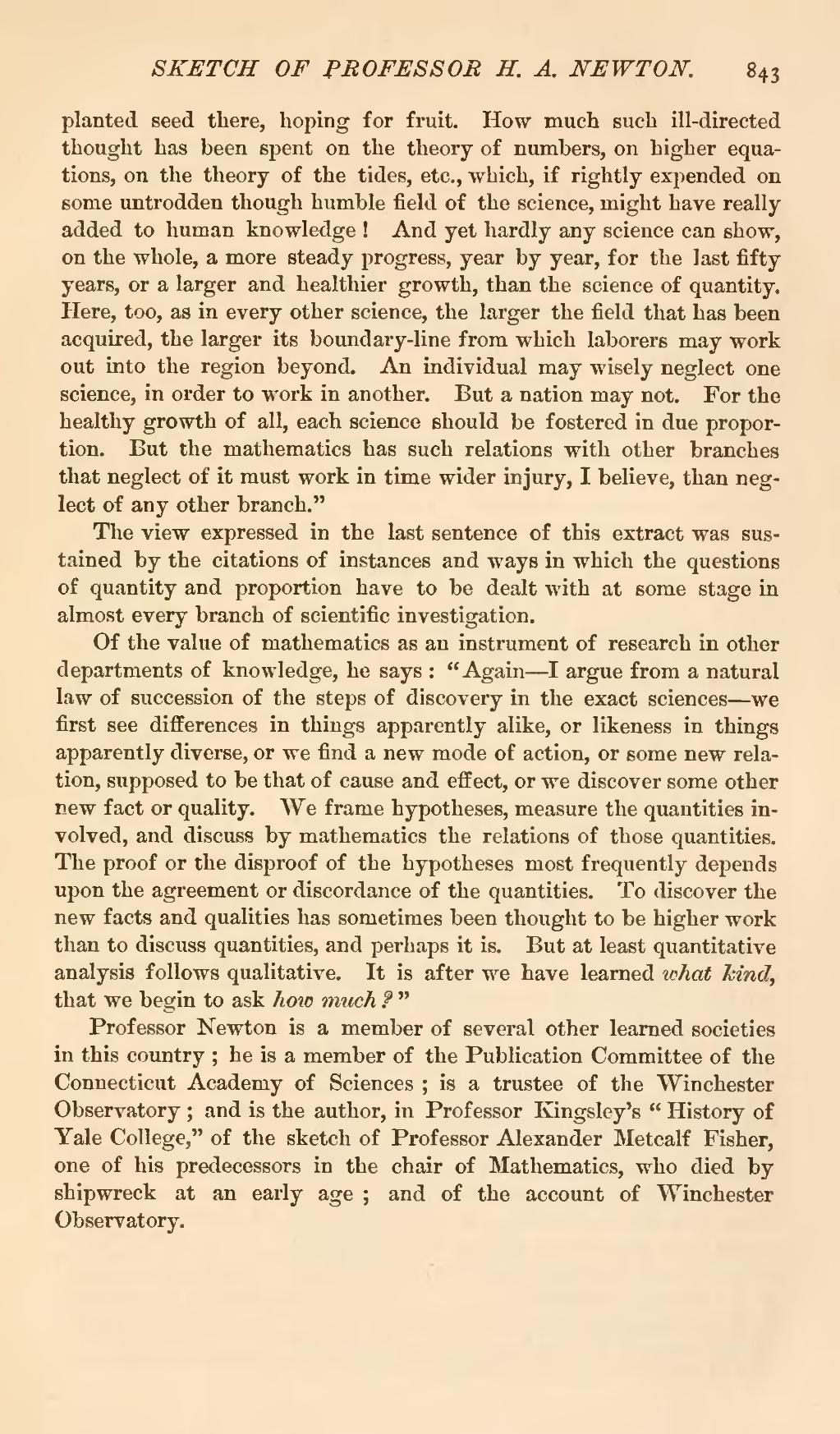planted seed there, hoping for fruit. How much such ill-directed thought has been spent on the theory of numbers, on higher equations, on the theory of the tides, etc., which, if rightly expended on some untrodden though humble field of the science, might have really added to human knowledge! And yet hardly any science can show, on the whole, a more steady progress, year by year, for the last fifty years, or a larger and healthier growth, than the science of quantity. Here, too, as in every other science, the larger the field that has been acquired, the larger its boundary-line from which laborers may work out into the region beyond. An individual may wisely neglect one science, in order to work in another. But a nation may not. For the healthy growth of all, each science should be fostered in due proportion. But the mathematics has such relations with other branches that neglect of it must work in time wider injury, I believe, than neglect of any other branch."
The view expressed in the last sentence of this extract was sustained by the citations of instances and ways in which the questions of quantity and proportion have to be dealt with at some stage in almost every branch of scientific investigation.
Of the value of mathematics as an instrument of research in other departments of knowledge, he says: "Again—I argue from a natural law of succession of the steps of discovery in the exact sciences—we first see differences in things apparently alike, or likeness in things apparently diverse, or we find a new mode of action, or some new relation, supposed to be that of cause and effect, or we discover some other new fact or quality. We frame hypotheses, measure the quantities involved, and discuss by mathematics the relations of those quantities. The proof or the disproof of the hypotheses most frequently depends upon the agreement or discordance of the quantities. To discover the new facts and qualities has sometimes been thought to be higher work than to discuss quantities, and perhaps it is. But at least quantitative analysis follows qualitative. It is after we have learned what kind, that we begin to ask how much?"
Professor Newton is a member of several other learned societies in this country; he is a member of the Publication Committee of the Connecticut Academy of Sciences; is a trustee of the Winchester Observatory; and is the author, in Professor Kingsley's "History of Yale College," of the sketch of Professor Alexander Metcalf Fisher, one of his predecessors in the chair of Mathematics, who died by shipwreck at an early age; and of the account of Winchester Observatory.
